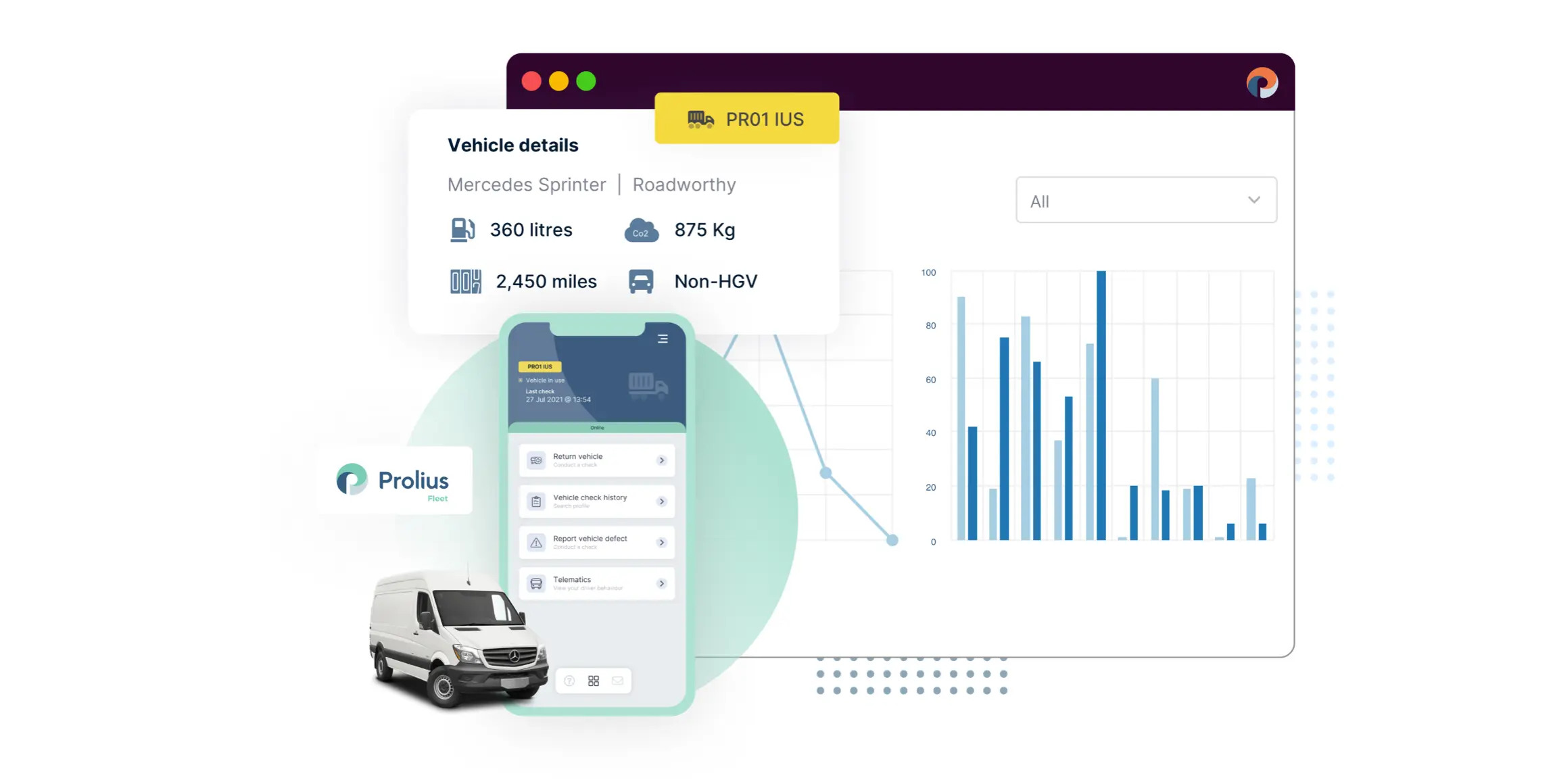Managing a fleet of vehicles comes with a host of challenges, from keeping track of maintenance schedules to ensuring driver safety and maintaining operational efficiency. Fleet management software plays a crucial role in addressing these complexities by providing a centralised platform that allows fleet managers to monitor, analyse, and streamline fleet operations effectively.
As businesses expand their fleet operations, managing vehicles manually becomes increasingly difficult. This is where fleet management technology offers a solution, automating essential processes and reducing the need for paperwork. The integration of a fleet management system enables businesses to improve performance, maintain safety, and increase fleet efficiency while ensuring vehicles remain roadworthy at all times.
According to Mordor Intelligence, the global fleet management software market is projected to grow at a CAGR of 10% between 2023 and 2028, driven by the increasing demand for real-time vehicle tracking and data-driven fleet operations.
This article explores the advantages of implementing fleet management software, highlighting how it improves fleet operations across multiple areas.
What is a Fleet Management System?
A fleet management system is a digital platform designed to help businesses oversee all aspects of their fleet operations. It provides real-time data, allowing fleet managers to monitor vehicle performance, driver behaviour, maintenance schedules, and fuel usage—all from a single dashboard.
By using fleet management software, businesses gain greater visibility over their operations, enabling them to make informed decisions based on accurate and up-to-date information.
Key Benefits of Fleet Management Software
1. Streamlining Maintenance Workflows
A well-maintained fleet is essential for avoiding breakdowns and keeping vehicles operational. Fleet management software allows businesses to schedule automated maintenance reminders, track vehicle servicing, and monitor repair history, reducing unexpected failures.
With access to real-time updates, fleet managers can ensure fleet maintenance remains on schedule, reducing vehicle downtime and improving fleet efficiency.
2. Strengthening Communication
Communication between fleet operators, drivers, and office-based teams is critical to maintaining smooth operations. A fleet management system acts as a central hub, ensuring all stakeholders remain connected.
By using a digital platform, businesses can manage driver communications, report vehicle issues instantly, and share real-time updates on deliveries and routes—resulting in a more coordinated fleet operation.
3. Access to Real-Time Data & Analytics
Each vehicle within a fleet generates large amounts of data daily. Fleet management software collects and analyses this information, helping businesses track:
- Driver behaviour
- Vehicle location and routing
- Fuel consumption trends
- Maintenance alerts
A GeoTab report found that fleets using real-time vehicle tracking see an average 10-15% reduction in fuel consumption, demonstrating the importance of fleet management technology in improving efficiency.
This data-driven approach allows fleet managers to identify inefficiencies and take corrective action, ensuring continuous operational improvements.
4. Automating Reporting & Documentation
Manual data entry and reporting can be time-consuming and prone to errors. A fleet management system automates the collection and generation of key reports, covering:
- Maintenance records
- Driver performance insights
- Incident and repair tracking
- Fuel usage trends
By automating these processes, fleet managers can focus on strategic planning while reducing administrative workload.
5. Improving Vehicle Efficiency
Efficiency plays a key role in fleet operations. By utilising fleet management technology, businesses can track real-time vehicle performance and fuel consumption, ensuring that vehicles operate at peak efficiency.
With detailed reports and analytical tools, fleet managers can make data-driven adjustments to improve route planning, reduce idle time, and enhance overall fleet efficiency.
6. Enhancing Driver & Fleet Safety
Unsafe driving practices contribute to a significant number of fleet-related accidents. Fleet management software enables businesses to monitor driver behaviour through real-time alerts and performance tracking, helping identify:
- Speeding incidents
- Harsh braking patterns
- Unauthorised vehicle use
According to The Royal Society for the Prevention of Accidents (RoSPA), fleets that actively monitor driver behaviour see a 20-25% reduction in accident rates.
By taking proactive measures, businesses can improve road safety, lower accident-related expenses, and extend vehicle lifespans.
7. Automating Vehicle Maintenance Tracking
Tracking vehicle servicing manually can be complex, particularly for businesses managing large fleets. Fleet management software offers a structured fleet maintenance system that provides alerts for:
- Upcoming servicing schedules
- Repair requirements
- Engine performance indicators
By automating maintenance tracking, fleet managers can plan servicing schedules effectively, reducing downtime and ensuring vehicle reliability.
8. Increasing Customer Satisfaction
Real-time tracking and automated communication tools allow businesses to provide accurate Estimated Time of Arrivals (ETAs) for deliveries, leading to improved customer satisfaction.
A well-integrated fleet management system can help businesses:
- Monitor delivery schedules
- Provide automated updates to customers
- Improve on-time delivery rates
This level of fleet management technology allows companies to build trust with clients by offering accurate and reliable service updates.
Advancing Fleet Operations with Digital Solutions
With advancements in fleet management technology, businesses can improve operational efficiency while reducing unnecessary costs. Digital tools have transformed how fleet operations are managed, allowing for automated workflows, improved safety measures, and better resource allocation.
A study by LogiNext highlights that businesses using fleet management software experience a 15-20% reduction in operational costs, demonstrating its value in improving fleet efficiency.
By adopting a fleet management system, businesses can take a proactive approach to vehicle maintenance, fuel tracking, and driver performance monitoring—ensuring their fleets remain reliable and cost-effective.
If you're looking to gain better oversight of fleet operations, schedule a demo for deeper understanding of how fleet management technology supports long-term efficiency and sustainability.
